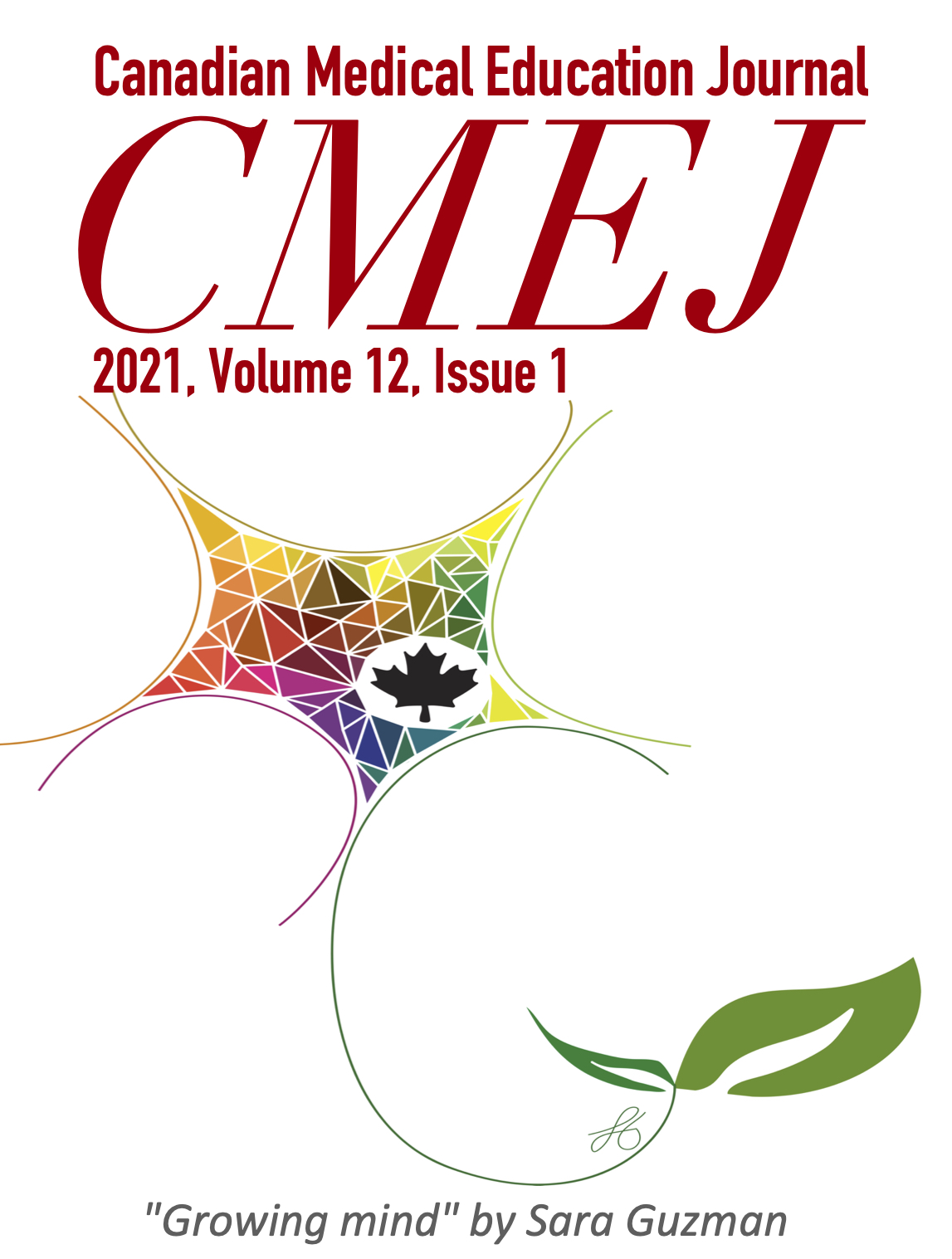The perceived contributions of non-physician team members to residents’ interprofessional education during a critical care rotation
DOI:
https://doi.org/10.36834/cmej.68905Abstract
Background: During rotations, post-graduate medical residents must learn about interprofessional teamwork and collaboration. Our study examined the role of non-physician healthcare team members in such education, from the perspectives of both residents and team members themselves.
Methods: This qualitative study took place in the intensive care unit (ICU) of a teaching hospital in a Canadian city. We conducted semi-structured individual and focus group interviews with both residents (n = 6) and the team members with whom they collaborated: pharmacists, nurses, respiratory therapists, and a social worker (n = 19).
Results: We developed a number of themes about interprofessional education (IPE) in this context from the data, including the presence of planned, unplanned, and tacit teaching; the influence of contextual factors like ICU culture, work demands, resident motivation, power hierarchies, and perceptions of ‘good’ and ‘bad’ residents; the gap between team member perceptions of their contribution to residents’ IP education and residents’ own perceptions; and concerns about the transferability of IPE to other contexts.
Conclusions: The influence of non-physician team members on residents’ IPE in the clinical environment is an understudied topic. While our study was limited to one ICU, the themes that emerged may be of interest to others in similar contexts.
Downloads
Published
Issue
Section
License
Submission of an original manuscript to the Canadian Medical Education Journal will be taken to mean that it represents original work not previously published, that it is not being considered elsewhere for publication. If accepted for publication, it will be published online and it will not be published elsewhere in the same form, for commercial purposes, in any language, without the consent of the publisher.
Authors who publish in the Canadian Medical Education Journal agree to release their articles under the Creative Commons Attribution-Noncommercial-No Derivative Works 4.0 Canada Licence. This licence allows anyone to copy and distribute the article for non-commercial purposes provided that appropriate attribution is given. For details of the rights an author grants users of their work, please see the licence summary and the full licence.











